Asti, where Moscato is at home

The Moscato Wine Experience in Asti presented the latest vintages of Asti Dolce, Asti Secco and Moscato d’Asti.
Three Piedmont producer associations - those of Asti, Brachetto d’Aqui and Barbera d’Asti – recently joined forces to present their wines to the press. Over 100 reporters attended, most of them foreign, while only a dozen or so Italian publications took part, among them DoctorWine. It was an interesting, in-depth presentation of the three types of Moscato wines: Asti Dolce (Sweet), Asti Secco (Dry) and Moscato d’Asti. All three were made using the Martinotti Method to create the effervescence, an Italian invention from the mid-19th century using an autoclave. The Traditional Method is also producing some interesting results with Moscato, as demonstrated by Gancia’S Asti 24 months. The Asti consortium, with its president Romano Dogliotti, had the excellent idea to offer a preview of the new 2018 vintage to give us a wine smile for the holidays.
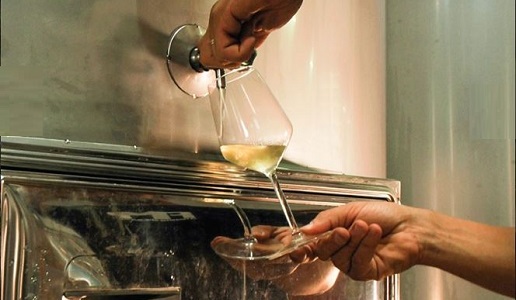
A couple of small observations of an economic-political nature before getting into the wines that impressed us the most and which we recommend for the upcoming holidays as well as next summer. First the not-so-good news: the price for Moscato grapes remains relatively low, around 1.07 euros a kg, and taking into consideration the time needed to work in the hills and hours needed in the vineyards, the capital investment needed for the “cold chain” and other technological considerations, there is no adequate margin for the quality of the product. Although the producers’ association represents 96% of the wine bottled, only 51% of winegrowers belong to it and just a slightly higher percentage of bottlers. This is a situation typical of a reality that is not standardized and where there are no shared polices which translates into attention being focused on the giant bottlers rather that the 49% of small producers who more than likely lift the quality of the wine. The fact that two estates like Paolo Saracco and Ca d’ Gal did not take part in the tasting is a problem for the appellation (we included them just the same). We hope that in the future there will be a more inclusive policy and that the focus will be on improving the product’s placement.
In conclusion, I would like to point out how some wonderful vertical tastings have allowed many to ascertain how Moscato d’Asti has a propensity to age that exceeds five years with some incredible quality surprises.
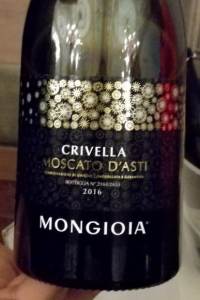
This 2016 is an example of how Moscato wines have an important complexity that also improves with age. Made from Moscato grapes, fermented and matured in stainless steel and aged in the bottle. The color is a bright straw that leans towards yellow and the complex bouquet has notes of orange blossom, sandalwood, yellow peach and sage that are intriguing and persistent. The creamy and flavorful mouthfeel has an excellent balance with a sweetness that is in perfect harmony with the effervescence.
92/100
18 euros
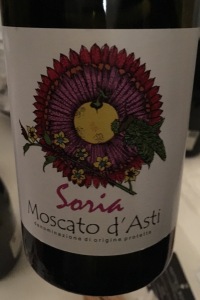
Made from Moscato grapes fermented and matured in stainless steel. The color is straw-yellow with green-gold reflections and the rich and complex bouquet has green sensations of basil and sage as well as insistent hints of tangerine and yellow flowers. The mouthfeel is creamy and flavorful with a fine and persistent effervescence, a great acidic-sugar balance and persistent finish.
92/100
10 euros
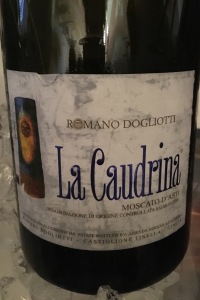
Made from Moscato grapes, fermented in stainless steel and matured in refrigerators. The wine has a pale, straw color with warm reflections and an intense and fruity aroma of tangerine, peach and white flowers. The mouthfeel is flavorful and balanced with a fine effervescence and a great balance between the acidity and the sweetness. The finish is persistent.
91/100
11 euros
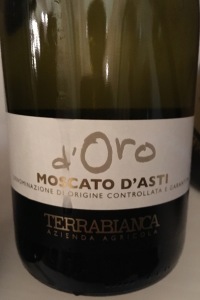
Made from Moscato grapes fermented and matured in stainless steel, the wine has a light, yellow color and distinct aromas of rose, tangerine, peach and a floral hint of hawthorn. The mouthfeel is flowing and persistent with a fine effervescence, balanced sweetness and flavorful aftertaste.
91/100
10 euros
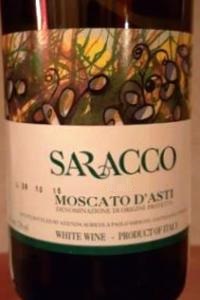 Moscato d’Asti 2018 Saracco
Moscato d’Asti 2018 Saracco
Made from Moscato grapes fermented and matured in stainless steel. The straw color has green reflections and the captivating bouquet has notes of linden, mallow and hawthorn as well as the classic one of white peach. The mouthfeel is sharp and flavorful with the effervescence accompanying the sweetness that is never overbearing while the fresh sensations of the aroma return in the finish.
91/100
11 euros
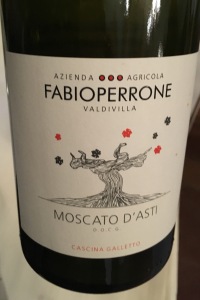
Made from Moscato grapes fermented and matured in stainless steel. The pale, straw color leans towards yellow while the aroma is quite intense and clear with a distinct and captivating touch of sage along with that of white peach. The pleasing mouthfeel has a nicely integrate effervescence and a sweetness that is never sickly, while the finish is consistent and well done.
89/100
9,50 euros

 Italiano
Italiano


















